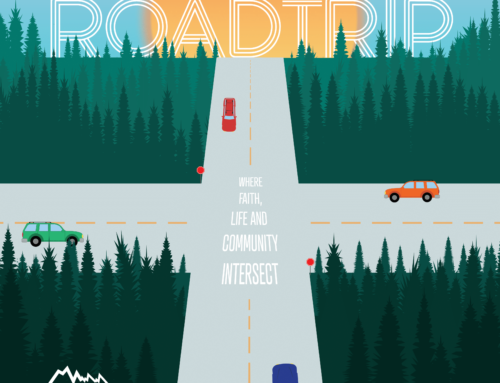This is part 3 of 3 in a reflection series on Renegotiating Faith. (See Part 1 and Part 2.)
————–
The Fear Of Missing Out (FOMO), the Fear of Not Being Amazing (FNBA), and the Fear Of Passionless Monotony (FOPM) press in on young adults ever more as they approach age 30, which, for many, marks the limit of emerging adulthood and a forced entry into adulthood. (p.12-13)
Many Millennials and Gen Z were told they could reach any goal (no matter how unattainable it may have been). Of course, some do make their dreams come true (see Youtubers). However, as a young adult graduates from post-secondary life into early career (and sometimes the beginnings of starting a family), those 3 Fears become reality when they compare the lives they’re currently leading with the one they expected to lead. That childhood premise of “you can achieve any goal” was mislead them.
The life call Jesus entrusts to us may not match those childhood dreams, but as John Ortberg once stated, “Some hopes need to die.” When we see the reality God presents us and realign our lives to what Jesus actually has in store for us, perhaps those fears will dissipate..
—————-
Many young adults talked about discovering a shared religious ethic behind all religions. They describe this ethic as leading one to become a good human and promoting social harmony. This discovery has led them to conclude that religious differences are only apparent and that those who insist on religious differences are sowing division. We call this belief the Universal Gnostic Religious Ethic (UGRE). This ethic posits that religion fulfills a set of psychosocial functions and any religion that fills these functions is a good one. The UGRE is a strategy for dealing with religious difference. (p.13)
As kids, we’re taught to get along with one another. In some cultures, unity (or at least perceived unity) is of utmost importance. Throw in other factors such as a postmodernity, prominence of the scientific method, the desire to not offend, and “you be you” and we see the shift towards UGRE. The result is that truth is not universally accepted; it’s believed that one cannot dispute (or does not have the authority to dispute) whether one person’s understanding of truth supersedes another.
Some religious circles respond to UGRE in ways that build bridges to other peoples. They find common ground to work together on certain issues. Some argue that’s a compromise to truth, that to remain true we should not waver and or even associate with those of different core values.
The church has not always been good at debating concepts and understandings of truth and balancing those with the intrinsic respect a person deserves because they are created by God. There is a way to appropriately engage with people of different understandings without having to compromise one’s core beliefs. While UGRE may seem like a way to embrace everyone, I wonder if the long-term effects may not be as positive. As Christian leaders, we can help navigate the trajectory UGRE may make us.
—————-
Warm relationships with parents who live out their faith are vital for faith formation; however, when it comes time to develop a Christian identity apart from one’s parents, young adults need persisting communities of faithful adults, mentors and friends in their lives. (p.13)
Over and over, Renegotiating Faith leans on this primary premise: it takes mature Christians to personally invest in the upcoming generation. While giving money is helpful—and needed—it does not itself surround an emerging adult (or children and youth) with thet Christian community that is essential to their faith growth. It’s not rocket science. Scripture is clear that faith is formed and refined within community. If Christian adults relinquish this role, should we be surprised when the next generation falls away?




Leave A Comment